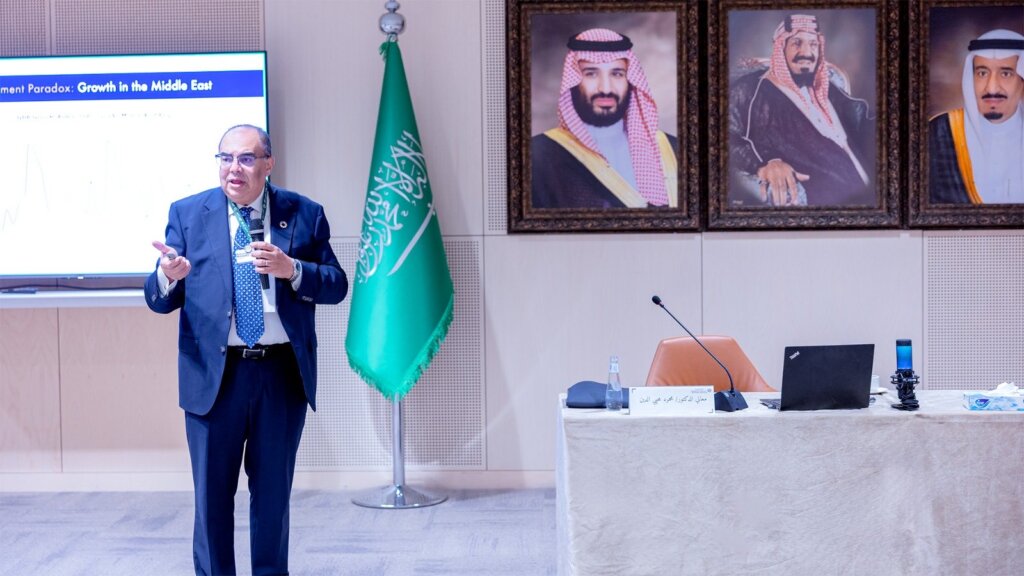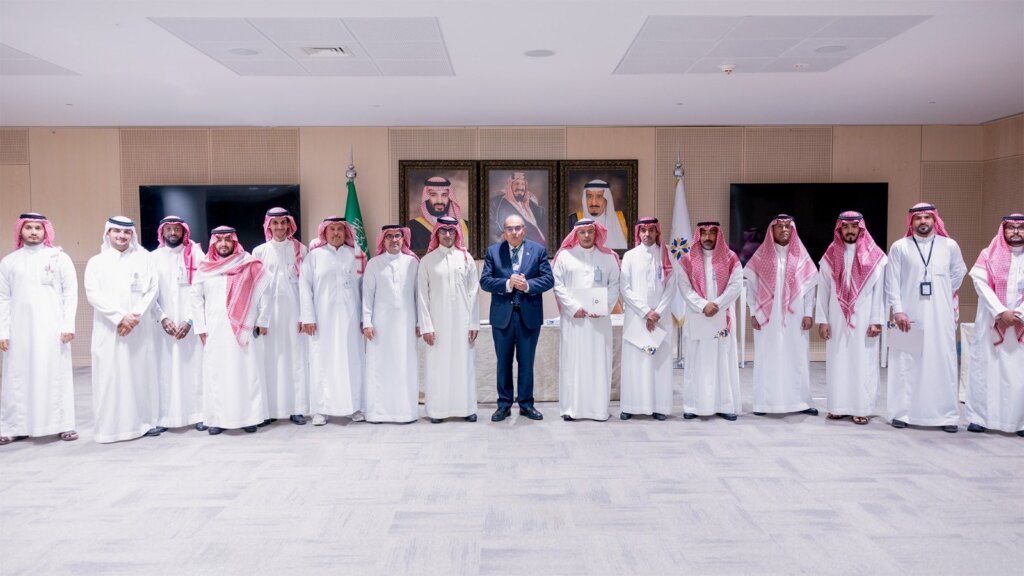
Dr. Mahmoud Mohieldin presented a lecture titled “Beyond the headlines of “Soft Landing” and Uneven Growth: Challenges of Progress and Sustainable Development in a Fragmented World” at the Prince Saud Al-Faisal Institute for Diplomatic Studies in Riyadh. The lecture tackled the ongoing “Development paradox” that emerging markets and developing economies are presented with today as they face sluggish growth, stubborn inflation and rising debt distress in an increasingly fragmented world. These past five years, the world is experiencing its worst period of growth in 30 years, debt distress is rising at unprecedented levels in the developing world all while net capital flows to developing economies further deteriorate.

Against the backdrop of these circumstances, there are three main dimensions to cooperation conducive to reversing this worrying trend: Investments, Trade and Migration. Looking at Foreign Direct Investments (FDI), Dr. Mohieldin highlighted that while FDI inflows to EMDEs have grown in absolute terms, they have declined both as a share of Gross Fixed Capital Formation and Gross Domestic Product. The number of Greenfield projects in EMDEs has also not significantly increased over the course of the past 20 years. Moving to trade, Dr. Mohieldin highlighted that increased participation in global trade is a potent engine for growth and poverty reduction. And while trade has grown and trade costs have generally gone down, there has been a worrying reversal in trends with increased protectionism in certain sectors and regions, namely in the ongoing trade competition between the United States and China, and with the imminent operationalization of the new CBAM. Finally, Dr. Mohieldin tackled migration as the third dimension of cooperation, showcasing the recovery in migrant flows to OECD countries after the pandemic and the reliance of migrant exporting countries on remittances as Official Development Assistance (ODA) and FDIs wane as sources of foreign currency income for these countries.



